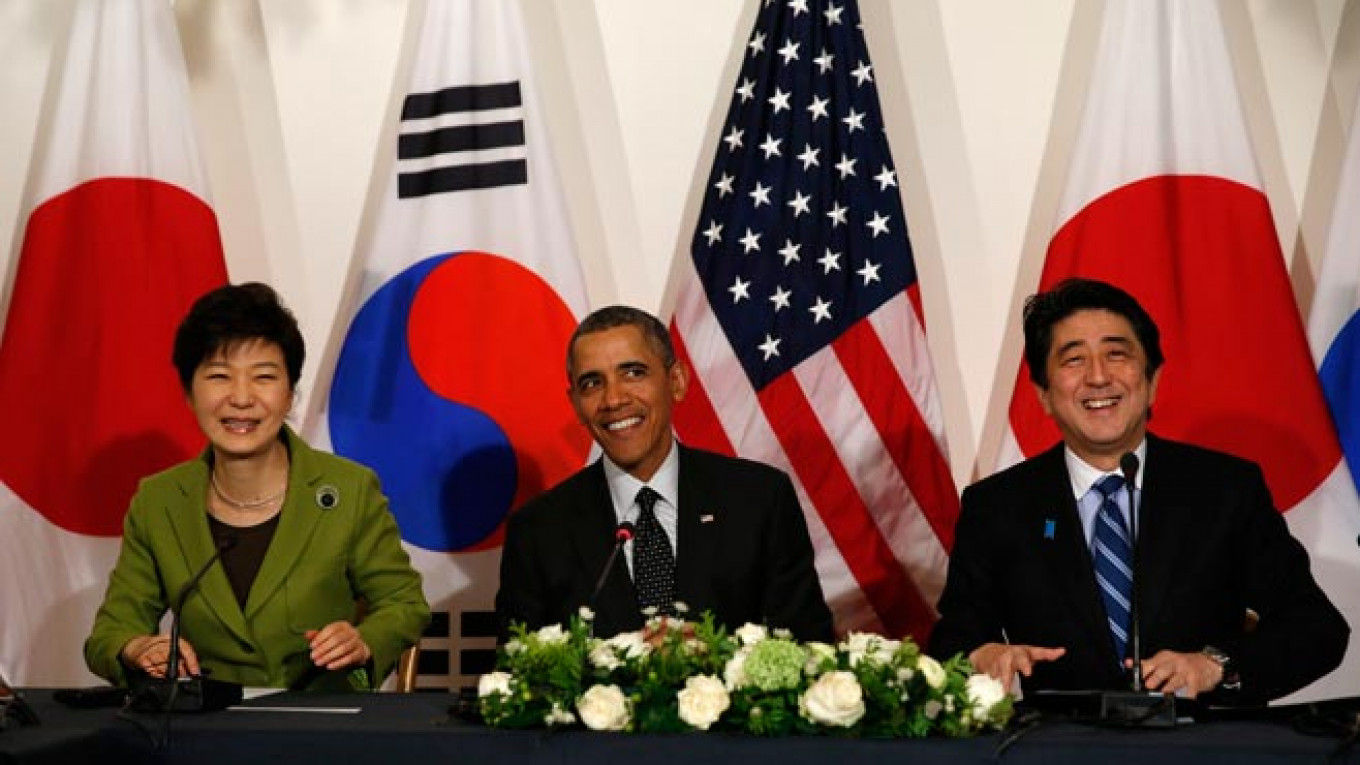THE HAGUE — World leaders have called on countries to cut their use and their stocks of highly enriched nuclear fuel to the minimum to help prevent al Qaida-style militants from obtaining material for atomic bombs.
Winding up a third nuclear security summit since 2010 on Tuesday, this one overshadowed by the Ukraine crisis, 53 countries — including the U.S. and Russia at a time of high tension between them — agreed that much headway had been made in the past four years.
But they also underlined that many challenges remained and stressed the need for increased international cooperation to make sure highly enriched uranium, or HEU, plutonium and other radioactive substances do not fall into the wrong hands.
The U.S. and Russia set aside their differences over Crimea to endorse the meeting's final statement aimed at enhancing nuclear security around the world, together with other big powers including China, France, Germany and Britain.
But Russia, China and 16 other countries shunned a separate initiative of the U.S., the Netherlands and South Korea at the summit to incorporate United Nations' nuclear agency security guidelines into national rules.
"The absence of Russia, China, Pakistan and India — all nuclear weapons states with large amounts of nuclear material — as well as others … weakens the initiative's impact," said the Fissile Materials Working Group, or FMWG, of security experts.
The Dutch hosts hailed the summit as "a major step toward a safer world." By contrast, the FMWG said the summit had taken "moderate steps" toward stopping dangerous weapons-usable nuclear materials from going astray but that bolder, more concerted action was needed.
U.S. President Barack Obama said Ukraine's decision at the first nuclear security summit in Washington in 2010 to remove all of its HEU was a "vivid reminder that the more of this material we can secure, the safer all of our countries will be."
"Had that not happened, those dangerous nuclear materials would still be there now," Obama told a news conference."And the difficult situation we are dealing with in Ukraine today would involve yet another level of concern."
A Message from The Moscow Times:
Dear readers,
We are facing unprecedented challenges. Russia's Prosecutor General's Office has designated The Moscow Times as an "undesirable" organization, criminalizing our work and putting our staff at risk of prosecution. This follows our earlier unjust labeling as a "foreign agent."
These actions are direct attempts to silence independent journalism in Russia. The authorities claim our work "discredits the decisions of the Russian leadership." We see things differently: we strive to provide accurate, unbiased reporting on Russia.
We, the journalists of The Moscow Times, refuse to be silenced. But to continue our work, we need your help.
Your support, no matter how small, makes a world of difference. If you can, please support us monthly starting from just $2. It's quick to set up, and every contribution makes a significant impact.
By supporting The Moscow Times, you're defending open, independent journalism in the face of repression. Thank you for standing with us.
Remind me later.






